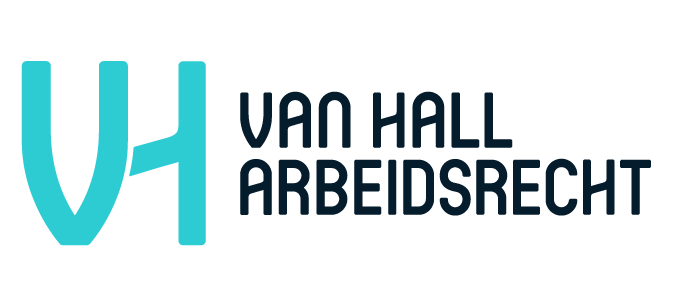....Mag je de werknemer om een Coronatoegangsbewijs vragen?..Are you allowed to request a COVID certificate from your employee?....
....Mag je de werknemer om een Coronatoegangsbewijs vragen?..Are you allowed to request a COVID certificate from your employee?....
….Deze vraag houdt de gemoederen al een tijdje bezig, zeker gezien de aanhoudende hoge besmettingscijfers.
Daarom is de ‘Tijdelijke wet verbreding inzet coronatoegangsbewijzen’ ingediend bij de Tweede Kamer. Hierna bespreken wij wat deze wet voor werkgever en werknemer zal betekenen.
..This question has been on everyone’s mind for some time now, particularly in view of the enduring high infection rates.
As a result, the “Temporary Act Broadening Use of COVID Certificates” [Tijdelijke wet verbreding inzet coronatoegangsbewijzen] was submitted to the Dutch House of Representatives. Below, we will discuss what this act will mean for employers and employees. ….
Archief..Archive
- januari 2025
- juli 2024
- december 2023
- maart 2023
- december 2022
- oktober 2022
- mei 2022
- december 2021
- november 2021
- september 2021
- juni 2021
- april 2021
- maart 2021
- januari 2021
- december 2020
- oktober 2020
- september 2020
- juli 2020
- april 2020
- maart 2020
- januari 2020
- december 2019
- november 2019
- oktober 2019
- juni 2019
- februari 2017
- juni 2016
….Wat bepaalt dit wetsvoorstel?..What does this bill stipulate?....
….Het wetsvoorstel maakt mogelijk dat op een locatie waar al een coronatoegangsbewijs (hierna: CTB) is vereist, bijvoorbeeld voor klanten van een sportschool, de daar werkzame werknemer dit ook moet tonen. Ook kan de minister nieuwe locaties aanwijzen waar (ook) voor de werknemer een CTB-plicht geldt. Dit laatste zal gebeuren als dat vanuit epidemiologisch opzicht noodzakelijk is en dit wordt op een later moment bepaald. Hierbij is de verwachting dat dit in een kantooromgeving niet snel aan de orde zal zijn, maar bijvoorbeeld wel in een fabrieksomgeving waar geen alternatieven zijn, zoals thuiswerken of voldoende afstand houden.
Deze CTB-plicht geldt, tenzij de werkgever een alternatief beschermingsniveau kan bieden op de werkvloer dat vergelijkbaar is met een CTB. De werkgever mag niet zelf bepalen op welke wijze hij voor een vergelijkbaar beschermingsniveau kan zorgdragen. Dit wordt bepaald door de minister, gebaseerd op het OMT-advies. Als de werkgever dit kan verzorgen dan geldt de CTB-plicht niet, maar in plaats daarvan de alternatieve beschermingsmaatregel(en).
..
The bill makes it possible for locations where showing a COVID certificate is already required, for example for visitors of gyms, to also require the employees employed there to show a COVID certificate.
It also allows the Ministry to designate new locations where the COVID certificate requirement applies to employees. This will be done if it proves to be necessary from an epidemiological point of view, which will be determined at a later date. The expectation here is that this is unlikely to be relevant in office environments, but it will be, for example, in factory environments where there are no alternatives, such as working from home or maintaining sufficient distance.
This COVID certificate requirement applies unless the employer can provide an alternative in the workplace that offers a level of protection comparable to that offered by a COVID certificate. Employers may not determine themselves how to arrange a comparable level of protection. The Ministry determines this based on advice from the Outbreak Management Team. If the employer can arrange this, the alternative protection measures will apply instead of the COVID certificate requirement. ….
….Wat gebeurt er als de werknemer geen CTB heeft?..What happens if an employee does not have a COVID certificate?....
….De werkgever is verplicht om de wet na te leven en zal dus, als dat is bepaald, een CTB aan zijn werknemer moeten vragen. Anders riskeert de werkgever onder andere een boete. Kan of wil de werknemer geen CTB laten zien, dan is het uitgangspunt dat werkgever en werknemer gezamenlijk tot een oplossing moeten komen. Omdat de wet wel moet worden nageleefd, kun je bij zo’n oplossing denken het verrichten van de eigen of andere werkzaamheden op een plaats waar geen CTB is vereist (zoals thuis). Als de werknemer geen CTB toont en er geen (tijdelijke, alternatieve) werkzaamheden elders mogelijk zijn, dan kan de toegang tot de arbeidsplaats worden ontzegd. Als werknemer dan alsnog een CTB toont, moet werkgever alsnog toegang tot het werk verschaffen.
Het algemene uitgangspunt is dat een werknemer recht houdt op loon, ook als hij niet werkt. Maar, als dit redelijkerwijs door de werknemer komt, bijvoorbeeld als hij redelijke instructies niet opvolgt of een redelijk voorstel van werkgever afwijst, dan heeft hij geen recht op loon. In de toelichting op het wetsvoorstel is bepaald dat bij dit uitgangspunt kan worden aangesloten. Daarbij weegt mee of werknemer zich kan laten testen om een CTB te verkrijgen, en, of dit gelet op de frequentie en concrete testmogelijkheden in redelijkheid van de werknemer kan worden gevraagd. Veel hangt hier dus af van de concrete situatie. Komen werkgever en werknemer niet tot een oplossing, dan kan, als uiterst middel, de arbeidsovereenkomst worden beëindigd. Daar zal een rechter dan over moeten oordelen. Ook over het testen moeten werkgever en werknemer overleg voeren; moet dit tijdens werktijd of kan het ook daarbuiten? Valt de reistijd aan te merken als werktijd, wie betaalt de reiskosten? In het algemeen mag van een werknemer verwacht worden te testen buiten werktijd.
..
Employers are required to comply with the act and are therefore required to request a COVID certificate from their employees if the act stipulates this. Otherwise, the employer risks incurring a fine, among other things. If the employee cannot or refuses to show a COVID certificate, the basic principle is that the employee and the employer must reach a solution together.
Because the act must be complied with, an example of such a solution could be having the employee perform their work or other work at another location that does not have a COVID certificate requirement (for example at home).
If the employee does not show a COVID certificate and it is not possible to have them perform work elsewhere, or it is not possible for them to temporarily perform alternative work elsewhere, then they may be denied access to the workplace. If the employee subsequently shows a COVID certificate at a later date, then the employer must allow the employee access to the workplace.
The basic principle is that an employee continues to be entitled to wages, even if they do not perform work.
If this is reasonably due to the employee, however, for example if they refuse to follow reasonable instructions or reject a reasonable proposal from the employer, they will not be entitled to wages. The explanatory memorandum to the bill stipulates that this principle can be followed. Another factor that is taken into consideration is whether an employee can have themselves tested to get a COVID certificate and whether this can reasonably be required of the employee in view of the frequency of testing and concrete testing options. A lot therefore depends on the specific situation. If the employer and employee cannot reach a solution, the employment contract may be terminated as a final resort. However, in that case the court has to assess this.
The employer and the employee also have to discuss testing; should this be discussed during working hours or can this also be discussed outside of working hours? Can travel time be considered working hours? Who pays for the travel costs?
In general, it may be expected of the employee to test outside of working hours.
....
….Wat geldt er op het gebied van privacy?..What are the rules when it comes to privacy?….
….Met dit wetsvoorstel krijgt werkgever een grondslag om persoonsgegevens te verwerken in de zin van de Algemene Verordening Gegevensbescherming (AVG). Aan de hand van de Corona Check-scanner, in combinatie met het identiteitsbewijs, zal geverifieerd worden dat het CTB betrekking heeft op de werknemer. De gegevens die zichtbaar worden zijn beperkt en bevatten alleen de gegevens of de QR-code een geldige CTB bevat en zo ja, de initialen en geboortedatum van werknemer. De werkgever mag volgens dit wetsvoorstel de vaccinatiestatus van werknemers niet registreren. Vragen naar de vaccinatiestatus mag wel, de werknemer hoeft daarop niet te antwoorden.
Alhoewel dit in het wetsvoorstel niet te lezen is, verwachten wij dat de werkgever wel mag registreren of de werknemer over een QR-code beschikt. Dit zegt tenslotte nog niks over de vaccinatie- of gezondheidsstatus van de werknemer. Tegelijkertijd wordt de werkgever dan wel in staat gesteld om noodzakelijke maatregelen te treffen, zoals het efficiënt kunnen roosteren van werknemers en/of het maken van afspraken over eigen of tijdelijke andere werkzaamheden, al dan niet op een andere plaats. Wij verwachten dat in het debat in de Tweede Kamer nog wel gesproken zal worden over dit soort praktische aspecten. Wij houden u hierover vanzelfsprekend op de hoogte.
..
This bill gives employers a basis to process personal data within the meaning of the General Data Protection Regulation (GDPR). Whether the COVID certificate relates to the employee will be verified based on the Corona Check scanner in combination with their identity document. The data displayed are limited and only include the information whether the QR code contains a valid COVID certificate and, if so, the initials and date of birth of the employee.
According to this bill, the employer may not record the employee’s vaccination status. The employer may inquire about the employee’s vaccination status, but the employee does not have to answer.
Even though the bill does not state this explicitly, we expect that the employer is allowed to register whether the employee has a QR code. After all, this does not say anything about the employee’s vaccination or health status. At the same time, this enables the employer to make necessary measures, such as being able to schedule employees efficiently and/or make arrangements for their own or temporary alternative work, whether at another location or not.
We expect that practical aspects like this will be addressed during the debate in the Dutch House of Representatives. We will of course keep you informed about this. ….
….Tot slot..Conclusion….
….Van een vaccinatieverplichting is met dit wetsvoorstel geen sprake. Ook geldt de CTB-plicht niet voor alle sectoren; ..This bill cannot be said to constitute a vaccine mandate. Moreover, the COVID certificate requirement does not apply to all industries; ….
….Zowel de wet, als die wordt aangenomen, als een besluit van de minister (bijvoorbeeld over een nieuwe locatie waar een CTB geldt) vervallen steeds na drie maanden, tenzij tot gehele of gedeeltelijke verlenging van de regelgeving wordt besloten; ..Both the act, if it is passed, and a Ministerial decree (for example to have the COVID certificate requirement apply to a new location) always expire after three months, unless a decision is made to extend all or part of the regulations; ….
….Met deze CTB-plicht gaat het steeds om 3G: gevaccineerd, genezen of getest (dus geen 2G); ..The COVID certificate requirement is always a 3G (vaccinated, recovered or tested [gevaccineerd, genezen or getest]) measure, and therefore not 2G (vaccinated or recovered [gevaccineerd or genezen]); ….
….Het wetsvoorstel moet nog goedgekeurd worden door de Tweede en Eerste Kamer. Begin januari wordt dit verder behandeld in de Tweede Kamer. .. The bill still has to be passed by the Dutch House of Representatives and the Dutch Senate. It will be discussed in more detail in the Dutch House of Representatives in early January.....
….Vragen?..Questions?….
….Wilt u meer informatie of overleggen over de mogelijke praktische implicaties? Bel of mail ons gerust!..If you would like more information or would like to discuss the possible practical implications, please do not hesitate to call or e-mail us. ....
….Geschreven door Hester Ulehake-Mink en Mardie Woltman. ..Wirtten by Hester Ulehake-Mink and Mardie Woltman. ….
























